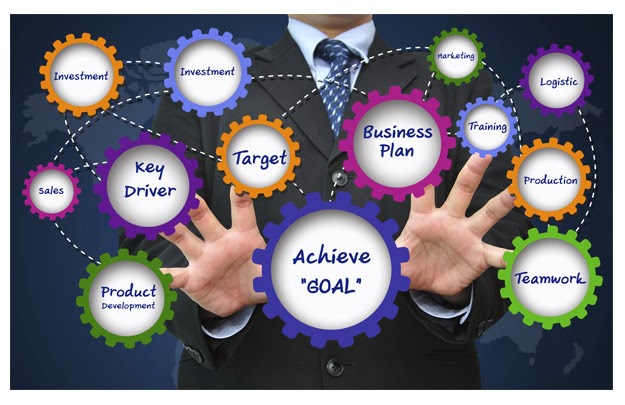Comprehending All About Event Management and Its Duty in Effective Events
Event management is a crucial element in the implementation of effective gatherings. It involves careful preparation and coordination to assure that every facet straightens with the designated vision. From business occasions to social events, the performance of occasion management can significantly influence participant experience. However, understanding the subtleties of this field reveals greater than simply logistics. The details of communication, budgeting, and assessment play necessary duties fit end results. What are the essential components that absolutely drive success?
The Value of Event Management
Event management plays a vital function in guaranteeing the success of any kind of celebration, whether it be a corporate conference, wedding, or celebration. It includes the preparation, organization, and execution of events, which calls for careful interest to detail and a structured strategy. Effective event management helps develop remarkable experiences for guests, fostering engagement and satisfaction.
Reliable occasion management can optimize source allocation, assuring that budgets are adhered to while maximizing the impact of the occasion. It involves working with different aspects such as place selection, vendor management, and logistics, all of which contribute to a seamless experience.
Furthermore, efficient occasion management can mitigate potential threats and difficulties, planning for unexpected problems that might develop. By prioritizing communication and partnership amongst stakeholders, occasion managers can assure that objectives are fulfilled, bring about effective results and positive comments from participants. Ultimately, the significance of event management hinges on its ability to change visions right into fact.
Secret Elements of Event Preparation
In event planning, several key parts are important for success. Budget plan management strategies, venue option tips, and timeline development basics create the structure of an effective strategy. Each of these components plays a substantial role in making sure that an occasion runs smoothly and meets its purposes.

Spending Plan Management Methods
Effective budget management is a foundation of successful event planning. It includes precise appropriation of sources to ensure that all elements of the event are effectively moneyed. A complete spending plan ought to consist of categories such as place, food catering, enjoyment, advertising, and backup funds for unanticipated costs. To preserve economic control, organizers must track expenses very closely and consistently compare them versus the budget plan. Utilizing budgeting software can streamline this procedure, giving real-time updates on monetary status. Additionally, getting numerous quotes from vendors can help determine cost-effective services without compromising high quality. By developing clear concerns and sticking to a well-structured budget plan, occasion managers can navigate monetary challenges and improve the total success of the occasion.
Place Option Tips
Picking the ideal venue is necessary for any effective event, as it establishes the stage for the overall experience. When choosing a location, occasion organizers should take into consideration elements such as place, ability, and availability. The location ought to be easily reachable for participants, ideally situated near transportation choices. In addition, the size must suit the anticipated number of guests conveniently, with room for any type of organized tasks. Organizers must also evaluate the location's facilities, including audiovisual equipment, seating plans, and providing choices. Spending plan constraints play a substantial role; because of this, understanding the complete prices, including surprise charges, is critical. Lastly, checking out the venue beforehand permits for a firsthand examination and helps ensure it aligns with the occasion's vision and requirements.
Timeline Development Fundamentals
A well-structured timeline is vital for effective occasion planning, working as a roadmap that overviews planners with each stage of the process. Secret parts of timeline advancement consist of setting target dates for each job, from initial principle to event execution. Planners should prioritize activities, such as protecting vendors, confirming the place, and advertising the event. Regularly updating the timeline ensures that all stakeholders continue to be informed and liable. Furthermore, including barrier times for unanticipated hold-ups can help keep total energy. It is vital to align the timeline with the event's purposes and sources, allowing for reliable allowance of time and budget plan. Ultimately, a well-crafted timeline boosts control and cultivates an effective occasion experience for both coordinators and attendees.
The Duty of Communication in Events
Efficient communication is necessary in event management, ensuring that messaging is clear and consistent. It assists in sychronisation among numerous stakeholders, which is important for a smooth execution. Furthermore, having robust crisis communication techniques in location can considerably reduce challenges that may develop during an event.
Value of Clear Messaging
Clear messaging works as the foundation of effective occasion management, making sure that all stakeholders-- individuals, enrollers, and organizers-- are aligned in their assumptions and understanding. Efficient communication cultivates depend on and openness, permitting clear purposes and preferred results to be articulated. When messages are succinct and regular, they reduce the threat of misunderstandings and false impressions, which can result in functional inefficiencies. Furthermore, clear messaging improves participant interaction, as individuals are most likely to link with an event when they understand its objective and relevance. Furthermore, it helps in marketing efforts, allowing sponsors to recognize the worth of their financial investment. charlotte event companies. Eventually, clear messaging is vital for producing a cohesive experience that reverberates with all included, facilitating the general success of the occasion
Control Amongst Stakeholders
Successful event management visit our website relies heavily on seamless sychronisation amongst stakeholders, where communication plays an essential duty. Efficient interaction guarantees that all events, including suppliers, enrollers, and employee, are aligned with the occasion's objectives and timelines. Normal updates and clear instructions cultivate a collaborative environment, decreasing misconceptions and boosting performance. Stakeholders have to establish open networks of interaction, using tools such as e-mails, conferences, and job management software to track development and address issues quickly. Recognizing each stakeholder's role and duties boosts responsibility, assuring that jobs are performed as planned. Eventually, well-coordinated interaction among stakeholders is important for steering the complexities of event preparation, leading to an effective and memorable occasion experience for all involved.
Effective Dilemma Interaction Strategies
Exactly how can event managers assure that they are prepared for unanticipated obstacles? Effective crisis interaction strategies are necessary for managing unanticipated circumstances during events. To start with, event supervisors ought to develop clear interaction networks, ensuring all stakeholders are informed immediately. Establishing a dilemma interaction plan ahead of time permits quick activity, detailing functions and duties. Additionally, training team to respond to situations sees to it that the team is outfitted to handle emergency situations efficiently.
Utilizing numerous interaction platforms, such as social media sites, email, and public statements, assists get to varied target markets quickly. Regular updates throughout a situation maintain openness and construct trust among attendees. Ultimately, proactive planning and clear communication can significantly mitigate the unfavorable effect of situations, resulting in successful event management, even in difficult circumstances.
Budgeting and Financial Management
Budgeting and economic management are important elements of effective event planning, as they frequently figure out the total success of the event. A well-structured spending plan offers as a roadmap, laying out expected costs and revenue streams. This monetary plan look these up assists event managers allot resources effectively and prevent overspending.
Crucial element of budgeting include venue expenses, event catering, amusement, advertising and marketing, and staffing. Each cost has to be meticulously estimated and kept an eye on throughout the planning process. Financial management also includes tracking income sources, such as ticket sales and sponsorships, to guarantee monetary practicality.
Routine financial testimonials enable occasion organizers to change their methods as essential, mitigating risks related to unanticipated prices. By preserving clear economic documents, occasion supervisors can show liability to stakeholders and boost future preparation efforts. Eventually, efficient budgeting and economic management prepared for supplying remarkable occasions while achieving business objectives.

Logistics and Operational Planning
A well-structured spending plan lays the foundation for reliable logistics and functional preparation in occasion management. It enables occasion organizers to allot sources successfully, guaranteeing that all logistical aspects straighten with the overall vision. Trick components include venue choice, transport plans, and equipment purchase. charlotte event companies. Coordinators have to anticipate the demands of attendees, vendors, and staff, making certain seamless control throughout the event
Operational planning also includes staff jobs and training, ensuring all group participants comprehend their duties. Interaction is critical; for that reason, developing clear networks among stakeholders decreases misconceptions. In addition, contingency prepare for unpredicted scenarios, such as severe climate or technological failures, are important to keep smooth procedures.
Ultimately, the success of an event heavily depends on meticulous logistics and functional planning. By prioritizing these elements, coordinators can develop memorable experiences while sticking to spending plan constraints and timelines, therefore achieving business objectives.
Advertising and Promo Approaches
While efficient logistics and functional preparation develop the foundation of occasion management, effective advertising and promotion approaches are vital for drawing in participants and ensuring a high level of interaction. These methods commonly start with determining the target audience, which permits event coordinators to customize their messaging and select suitable interaction networks. Making use of social media platforms, email advertising and marketing, and collaborations with influencers can significantly intensify reach and visibility.
Developing compelling content such as videos, blogs, and graphics can create rate of interest and enjoyment around the occasion. Early riser ticket offers and advertising discounts also function as effective rewards for possible guests. Involving storytelling and clear phone call to activity are crucial in transforming rate of interest into real participation. Additionally, leveraging analytics aids in examining the performance of marketing efforts, enabling organizers to adjust strategies in real-time. Jointly, these elements contribute to an effective occasion that reverberates with its target market.
Assessing Event Success and Feedback
Effective examination of event success and feedback is vital for constant improvement and lasting growth in occasion management. This process involves systematically collecting and examining data connected to different aspects of an occasion, consisting of participant contentment, logistical implementation, and total impact. Surveys, interviews, and emphasis teams are common techniques utilized to gather qualitative and measurable comments from participants.
Secret efficiency indicators (KPIs) such as attendance numbers, profits generation, and social media involvement also play an important duty in gauging success. By evaluating this details, event managers can identify toughness to build on and weak points to deal with in future occasions.
Feedback permits for adjustments to be made in real-time, improving the attendee check my site experience and promoting commitment. Inevitably, a detailed evaluation procedure not only notifies future planning yet additionally adds to an extra robust track record for the occasion management group, making certain sustained success in an affordable landscape.

Frequently Asked Inquiries
What Qualifications Are Needed to Become an Event Supervisor?
To come to be an event manager, individuals typically need a mix of pertinent education and learning, such as a degree in friendliness or organization management, and practical experience in planning, organizing, and carrying out numerous kinds of occasions efficiently.
Just how Do I Pick the Right Place for My Event?
Choosing the right place involves evaluating the occasion's function, capability, location, services, and spending plan. A comprehensive testimonial guarantees that the location aligns with the occasion's goals and enhances the overall experience for participants.
What Modern Technology Devices Are Crucial for Event Management?
Essential technology devices for occasion management consist of enrollment software program, occasion apps, ticketing platforms, project management devices, and analytics software program. These resources enhance planning, enhance guest interaction, and help with communication, inevitably adding to an effective occasion experience.
Just how Do I Manage Unforeseen Issues Throughout an Event?
To handle unforeseen issues throughout an occasion, one must continue to be calm, analyze the situation, communicate successfully with the group, carry out pre-planned contingency actions, and adjust quickly to assure minimal disturbance to the total experience.
What Are the most recent Patterns in Event Management?
The current patterns in event management include online and hybrid formats, sustainability practices, individualized participant experiences, enhanced use technology, and immersive settings. These patterns intend to develop even more engaging and memorable experiences for participants.